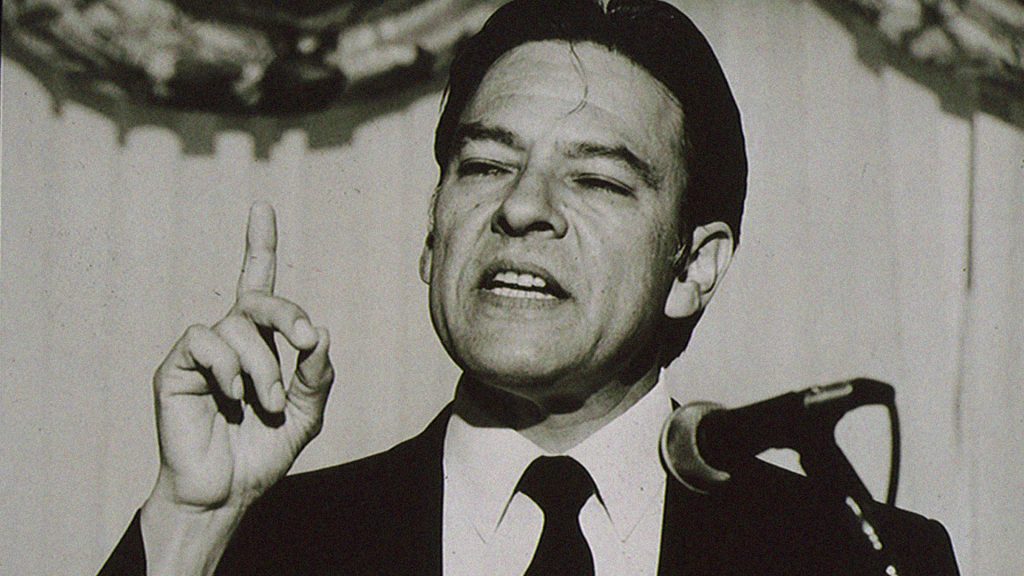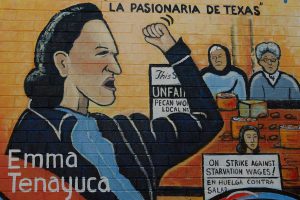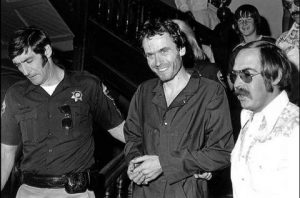For decades, Latinos in the United States did not have a political voice. At the age of twenty-three, Willie Velásquez decided to change this. He worked to ensure the empowerment and participation of Chicanos in U.S. democracy, a project that would become his life’s work. Velásquez’s motivation to educate Latinos showed his commitment to the values of American democracy. As Henry Cisneros, former Latino mayor of San Antonio remembered Velásquez, “[Willie’s] legacy is large in the hearts and minds of those of us who knew and worked with him.”1

Before becoming a Mexican American political activist, Velásquez attended college at St. Mary’s University. In 1967, he and other Latino-Chicano students, known as Los Cinco (The Five), created the Mexican American Youth Organization (MAYO).2 MAYO worked to register Chicano youth to vote, and the group defended farm workers’ rights by becoming one of the anchors of the Chicano Movement. The group popularized the motto Su Voto Es Su Voz (Your Vote is your Voice). They spread their message through local newspapers and city-to-city events to bring other young people into the organization.3
As a St. Mary’s student, Velásquez involved himself in volunteer work, where he began to develop leadership skills, offering a helping hand to others while continuing the Marianist heritage of civic engagement. Velásquez signed up to help farm workers who were on strike because he saw the realities of their conditions and their mistreatment by the Texas Rangers. Conditions worsened for the farm workers as the Texas Rangers continued to make discriminatory arrests, and unreasonable beatings on the strikers escalated. Velásquez decided he needed a big political voice to speak for the farm workers. During his third internship in Washington D.C., Velásquez visited Congressman Henry B. González, who became his first political mentor. González’s vision and passion for helping the voiceless attracted Velásquez to the congressman. He wanted González’s support for the migrant workers, yet González declined to help since it was out of his district. From that point on, Velásquez and González became political opponents.4
In 1969, González made his first attack against MAYO. In a speech, he characterized the activists as members of a movement driven by “race hate.”5 José Ángel Gutiérrez, one of MAYO’s founders, held a press conference answering González’s attacks, stating that MAYO was going to take the necessary means to “eliminate their enemies”.6 In contrast, Velásquez answered the congressman’s attacks by appealing to American values, such as equality, unity, liberty, and progress. He stated that in all of their efforts working for San Antonio’s community, they were never called “traitors to our country.”7 After the speech, the public responded by inviting the congressman to observe the good works from these Chicano activists. 8

Early in 1970, several San Antonio students formed the Chicano Coalition of College Students (CCCS). Velázquez’s brother George and soon-to-be wife Janine played major roles in the Coalition. When the students heard that St. Mary’s University invited Congressman González to speak, they planned a walkout. Velásquez attended as a supporter of his brother’s efforts and witnessed the public humiliation of his former mentor. After ten minutes of the congressman’s commentary against the Chicano ideals, the activists started leaving. The congressman noticed Velásquez in the crowd, and he challenged him to a fight. The physical confrontation with the congressman did not end well for Velásquez. After, Velásquez made a public statement proclaiming that every time Henry B. González did something wrong, he was going to be there to make it right. With that declaration, Velásquez launched a lifetime effort to discredit González. While most political quarrels between González and other activists were resolved, González and Velásquez’s feud lasted throughout Velásquez’s life.9

Voting is a fundamental right of U.S. citizens. When Velásquez left MAYO, he created the Southwest Voter Registration Education Project (SVREP) in 1974, and the organization registered 2.3 million Latino voters. Ten years later, it had doubled the number of Latinos registered to vote to about 4 million.10 Velásquez was a light and hope for Latinos in the United States. As Julian Castro, former San Antonio mayor, once said, “I hope that someday when a Latino/a has his/her hand on the Bible getting sworn as the president of the United States that they’ll be thinking about Willie and his work.”11 As Americans, it’s our duty to highlight the importance of the achievements our ancestors attained, as well as the adversities they went through. Citizens owe respect to the activists that have helped shaped our country. Nowadays, registering to vote is as easy as filling out a registration form and sending it by mail, submitting it online, or delivering it directly to the voter registration office. Everyone has a voice and has the right to be heard.
- Juan Sepúlveda, The Life and Times of Willie Velásquez: Su Voto es Su Voz (Texas: Arte Publico Press, 2003), vii ↵
- Wikipedia, 2018, s.v. “Mexican American Youth Organization.” ↵
- Texas State Historical Association Encyclopedia, 2010, s.v. “Mexican American Youth Organization,” by Teresa Palomo Acosta. ↵
- Juan Sepúlveda, The Life and Times of Willie Velásquez: Su Voto es Su Voz (Texas: Arte Publico Press, 2003), 44, 53-56 ↵
- Juan Sepúlveda, The Life and Times of Willie Velásquez: Su Voto es Su Voz (Texas: Arte Publico Press, 2003), 86. ↵
- Juan Sepúlveda, The Life and Times of Willie Velásquez: Su Voto es Su Voz (Texas: Arte Publico Press, 2003), 86. ↵
- Juan Sepúlveda, The Life and Times of Willie Velásquez: Su Voto es Su Voz (Texas: Arte Publico Press, 2003), 88. ↵
- Juan Sepúlveda, The Life and Times of Willie Velásquez: Su Voto es Su Voz (Texas: Arte Publico Press, 2003), 83-88. ↵
- Juan Sepúlveda, The Life and Times of Willie Velásquez: Su Voto es Su Voz (Texas: Arte Publico Press, 2003), 104-108 ↵
- Antonio González, interviewed by Joe Nick Patoski, Voices of Civil Rights, June 2004. ↵
- Willie Velásquez: Your Vote is Your Voice, directed by Hector Galán (Arlington, VA: PBS Distribution, 2016), Documentary. ↵



32 comments
Lindsey Wieck
Andrea, this article is now a required reading in my graduate Advanced Public History methods course!
Mario Sosa
Admittedly, I had known very little about Willie Velasquez so your article did a good job explaining his accomplishments, the organizations he helped create and rivalry with Henry B. Gonzalez. Just as interesting was the fact that Velasquez attended St. Mary’s University. Your second paragraph was a bit too narrow because of the obstructing photo, but overall your article was very well made.
Sara Ramirez
This was a very interesting article about the life and legacy of Willie Velásquez. The Velásquez and González feud was surprising to read about. The name Henry González makes me think of the convention center in downtown San Antonio named in his honor, so the idea of González having a physical confrontation at St. Mary’s University is a bit shocking. I recently read a book by David Martin Davies called “San Antonio Secret History” and I think this story could be a good entry.
Alicia Guzman
The legacy that Wilie Velasquez has left on not only St. Mary University’s campus but throughout the entire State of Texas will be everlasting. His work fundamentally changed how voting cohorts in the United States. He helped those who thought they did not have a voice in their own country a voice. He taught us that the ability to vote should not be taken for granted and for that, we should be thankful. The fact that I am able to walk around the same campus that he attended is quite the honor.
Fatima Navarro
I as unaware of Velazquez and Gonzalez feud, I would have never thought. I was not raised in San Antonio nevertheless Texas so I had not read about this at all but it is thanks to this article that now I know. Velazquez is a great example of voicing out your voice because it does count. As a latina myself and American citizen, I am ready to vote every time be it a 2-year or 4-year voting season. I, too, hope one day not so far away we can have a latino president in this country and just as the article says, it will all be attributed to Willie Velazquez who started this movement.
Gabrien Gregory
This is an excellent read for anyone who cares about the advancement of civil rights in the United States. I think this article is particularly significant as a soon-to-be St. Mary’s University graduate. Willie Velasquez will be remembered as an inspiring graduate, as well as an important figure in Texas and national politics. I thank the author for shining some light on a local activist, and not just another nationally recognized one (not to discredit any activists work). I appreciated the author’s use of quotes from Julian Castro and Henry Cisneros, both local and national figures themselves.
Mariana Valadez
It is very interesting how Willie Velasques was a St Mary’s alumni. He is a big influence in San Antonio and in the Latino community. This article was very well written. I learned a lot of knew things. I had never heard about Willie Velasques before this article. I was very engaging and interesting to read this article. Great article!
Ximena Mondragon
Overall, this article is very well written and the transition are great. It is also very engaging and provides many information for readers. I actually went to an event an met the wife of Willie Velasquez and she is amazing. She was telling me stories of her husband and his amazing work. I also got to take a picture with her so it was amazing. They both had to sacrifice so much in order to give so many people the right to vote.
Miguel Camarillo-Cohen
Great article! The author did a great job of telling part of Willie’s story. SVREP started in the 70’s, a time of racial divide much like today. SVREP continues to fight to protect the vote, mobilize and educate the Latino vote and give voice to the disenfranchised. Enjoyed reading the article and learning something new about a St. Mary’s alumni.
Jasmine Rocha
The most interesting fact of the article was knowing that Willie Velasques is a St Mary’s alumni. He was very influential in the community of San Antonio to get young Latinos involved in voting and giving them a voice of their own. The article was very interesting and well-written through reading it I was very engaged. Nowadays especially in St Mary’s right now the community is trying to get more students and Latinos involved in voting and helping to create a voice for the minority.